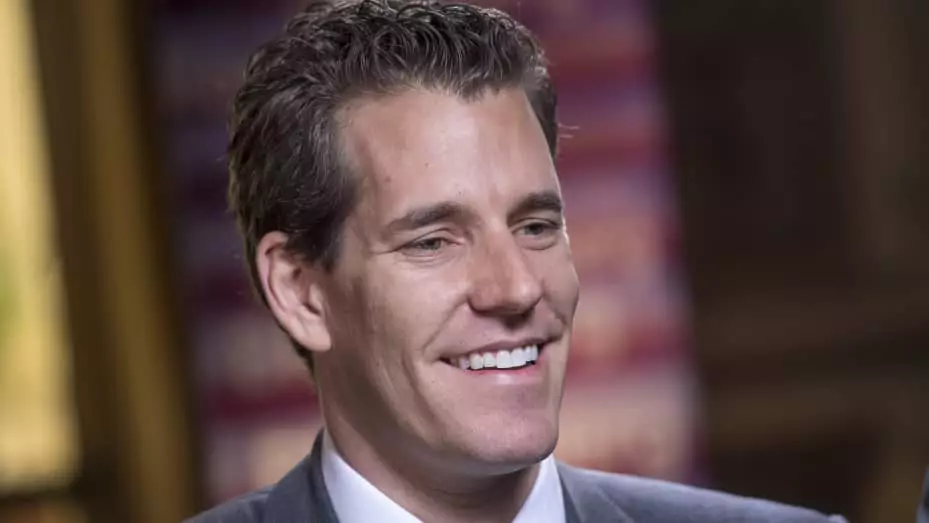The cryptocurrency landscape has been marked by volatility and regulatory scrutiny, making it a battleground for policy and innovation. In a recent and bold move, Tyler Winklevoss, co-founder of the Gemini exchange, aligned his firm’s policies with those of Coinbase, instituting a significant ethical stance against the hiring practices of law firms associated with the U.S. Securities and Exchange Commission (SEC). This decision highlights growing discontent with the SEC’s regulation policies and reflects a broader call for accountability in the legal framework governing the crypto industry.
The decision by Winklevoss to adopt a stance similar to that of Coinbase’s CEO Brian Armstrong stems from a desire to confront what they perceive as an “unlawful war” on cryptocurrencies. Armstrong had previously made waves by criticizing major law firms that employed former SEC officials known for their stringent regulatory actions against the digital asset sector. Winklevoss, echoing this sentiment, took to social media platform X to call for a “running list” of SEC officials whose actions he believes have negatively impacted the industry. This organized resistance against the SEC’s tactics is a clarion call for other firms to consider where they place their allegiance in the regulatory landscape.
The repercussions of this stance could be profound. By severing ties with firms like Milbank—a decision prompted by the firm’s hiring of Gurbir Grewal, a former SEC Director of Enforcement—Coinbase is signaling that they will no longer support legal entities that engage in what they view as regulatory overreach. Grewal’s departure from the SEC preceded a crucial appeal in the Ripple case, raising eyebrows among legal experts who posited that his exit could indicate underlying conflict within the agency. The timing of these decisions is crucial, as the crypto sector navigates an intricate regulatory terrain.
The Ripple case, involving significant legal ramifications for cryptocurrency companies, serves as a backdrop to this unfolding scenario. Critics of the SEC, including attorney Jeremy Hogan, have publicly questioned the agency’s aggressive tactics, suggesting that the Appeal case against Ripple could backfire and impede the SEC’s influence over the industry. Winklevoss and Armstrong’s reactions to these developments indicate a growing frustration with the oversight body perceived as stifling innovation through vague regulations and enforcement actions.
Armstrong’s remarks suggested that the SEC leadership sought to impose constraints on the burgeoning crypto space. He further noted that the individuals who have facilitated such oversight should not prosper from the very industry they have sought to control. This entrepreneurial mindset fosters a culture of accountability rather than complacency, pushing others in the finance and technology sectors to reflect on their associations with regulatory officials and law firms.
In a related context, figures like Tron founder Justin Sun have entertained the idea of hiring regulatory officials like Gary Gensler to facilitate a fresh perspective within the crypto community. Such proposals evoke a sense of irony given the stark contrasts in public perception regarding the SEC’s effectiveness under Gensler’s leadership. Sun’s offer, shared publicly, suggests a willingness to engage constructively with former officials, provided they show genuine intent toward fostering a collaborative crypto environment.
Despite this diversity of opinion, the actions taken by Winklevoss and Armstrong may indicate that many leaders within the crypto sector are tired of the passive attitude often adopted toward regulatory measures. They are adamantly striving to redefine the dynamics between the industry and governing bodies, thereby creating an atmosphere that encourages responsibility within legal practices and governance.
Winklevoss and Armstrong’s decisions resonate beyond mere policy changes; they reflect a larger movement within the crypto industry advocating for greater accountability and transparent regulation. As former officials transition into consulting and legal roles in firms dealing with cryptocurrencies, the ethical implications of their involvement are coming under intense scrutiny. The call for a more cooperative and well-defined regulatory structure is essential to unlocking the full potential of the digital asset ecosystem. The crypto community stands united in its pursuit of innovation, advocating for empowered leadership that prioritizes the industry’s sustainability over compliance with unrealistic regulatory frameworks.


Leave a Reply